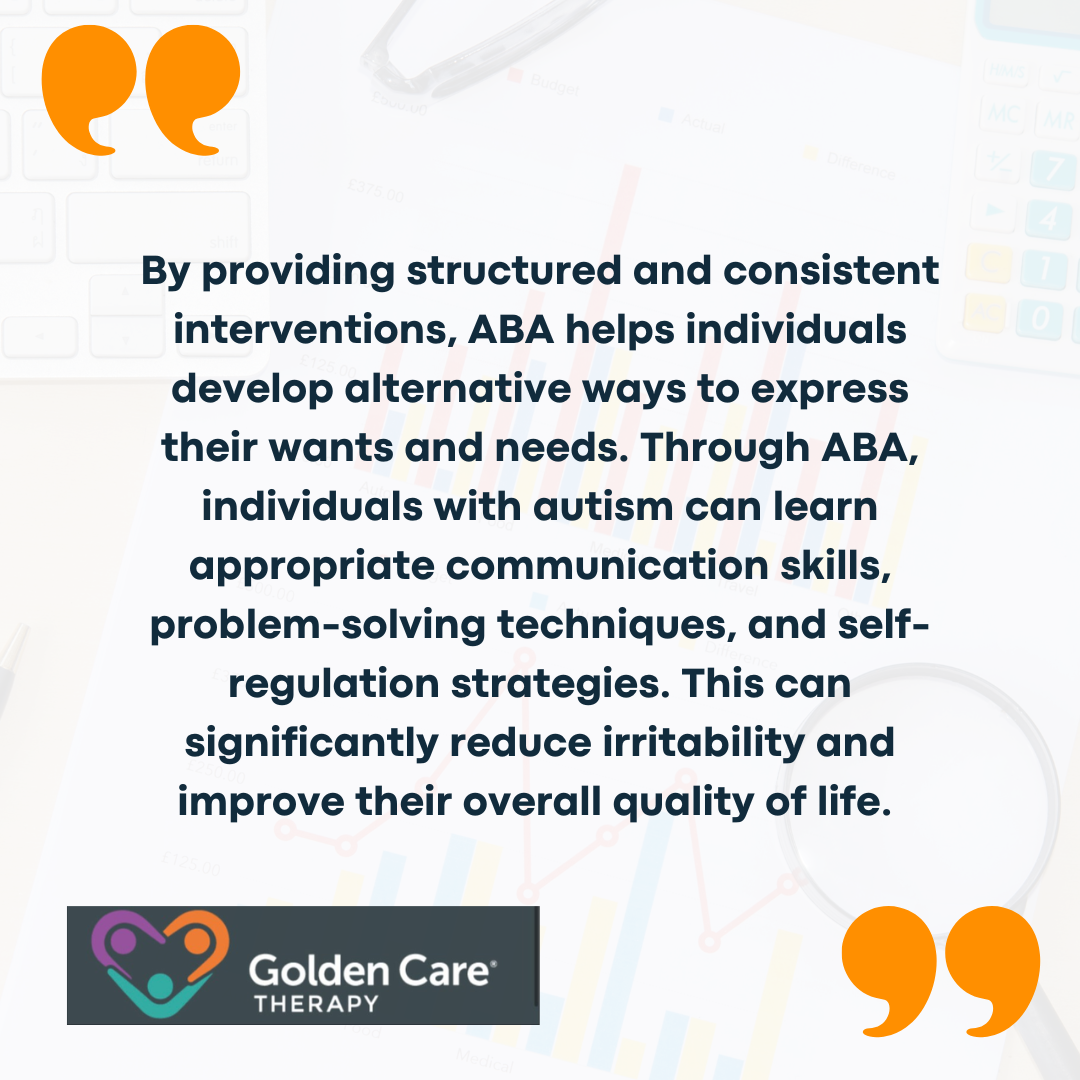Autism irritability encompasses a range of behaviors, including aggression, temper tantrums, lack of empathy, and even self-injury. However, it’s important to note that irritability is not a core symptom of autism, but rather a common co-occurring challenge. It can manifest differently in each individual, making it essential to address and manage these behaviors on an individual basis.
The impact of autism irritability can be significant, both for the individual with autism and their caregivers. It can disrupt daily routines, hinder social interactions, and impede the individual’s ability to learn and participate in various settings. Additionally, it can lead to increased stress levels for caregivers, affecting their own well-being and ability to provide effective support.

Prevalence and Common Challenges
Aggression is one of the most commonly reported challenges by parents of children and adolescents with autism.
It is estimated that around 50% of individuals with autism exhibit aggressive behaviors at some point in their lives. Tantrums and self-injurious behaviors, such as head-banging or biting oneself, are also frequently observed in individuals with autism irritability.
Research has shown that anxiety is closely associated with irritable mood and temper outbursts commonly seen in individuals with autism. In fact, anxiety affects up to 40% of children with autism spectrum disorder (ASD). The presence of anxiety can exacerbate irritability symptoms and further impact the individual’s overall well-being.
It is important to recognize that autism irritability is not a result of intentional misbehavior or defiance. Rather, it is often a response to difficulties in communication, sensory sensitivities, or frustration due to challenges in understanding or expressing needs and emotions.

How to Manage Irritability
Managing irritability in individuals with autism often involves the use of various approaches. These approaches focus on addressing the underlying causes of irritability and helping individuals develop effective coping strategies.
There are three key approaches that can be used in this case. They’re as follows:
Medication Options
In some cases, medication can help manage autism-related irritability, which includes aggression, tantrums, and self-injury.
Two medications that are approved by the U.S. Food and Drug Administration (FDA) for treating autism-related irritability are Risperidone (Risperdal) and Aripiprazole (Abilify). These medications have been shown to effectively reduce aggression and self-injury in both children and adults with autism. Risperidone, in particular, has undergone extensive testing in this regard.
It’s important to note that medication should always be prescribed and monitored by a qualified healthcare professional who specializes in autism. The benefits and potential side effects of medication should be carefully considered, and regular evaluations should be conducted to assess the effectiveness and adjust the dosage if needed.
Behavioral Interventions
Behavioral interventions, such as Applied Behavior Analysis (ABA), have been widely recognized for their effectiveness in helping individuals with autism learn new and effective behaviors. ABA focuses on teaching individuals skills and strategies to replace aggression as a means of communication.

It is important to work with trained professionals who have experience in implementing ABA techniques to ensure the highest level of effectiveness.
Identifying Underlying Triggers
Understanding and identifying the underlying triggers of irritability in individuals with autism is crucial in managing their behavior. Irritability can be triggered by a variety of factors, such as disturbing breaks in routine, lack of sleep, jarring sensory stimuli (noises, lights, or smells), or even undiagnosed mental health problems.
By closely observing and keeping track of behavioral patterns, caregivers and professionals can identify potential triggers and develop strategies to minimize their impact. Creating a structured and predictable environment, ensuring individuals with autism get sufficient rest, and addressing any sensory sensitivities can help reduce irritability.
Additionally, addressing any underlying mental health concerns, such as anxiety or depression, can also contribute to managing irritability effectively.

Research Insights on Autism Irritability
To gain a deeper understanding of autism irritability, it is important to explore the research insights surrounding this aspect of autism spectrum disorder (ASD).
In the following sections, we’ll delve into the various research related to autism irritability.
Affective Reactivity Index
The Affective Reactivity Index (ARI) is a measure used to examine irritability in children with mood and disruptive behavior disorders. While it has been extensively studied in those populations, its utility in children on the autism spectrum is still being explored.
The ARI assesses various aspects of irritability, including temper outbursts, aggression, and mood reactivity. By utilizing the ARI, researchers can gain insights into the severity and impact of irritability in children with ASD.
Correlation with Anxiety
Anxiety is a common co-occurring condition in individuals with ASD. Studies have shown that up to 40% of children with ASD experience anxiety. Interestingly, anxiety has been found to be associated with irritable mood and temper outbursts commonly seen in individuals with ASD.
This correlation suggests that anxiety may contribute to the manifestation of irritability in individuals with ASD.
In boys with high-functioning ASD, parent-reported irritability and anxiety were strongly correlated, highlighting the interplay between these two factors.
Noncompliant Behavior Association
Noncompliant behavior is frequently observed among children with ASD. It refers to behavior that does not align with requests or instructions given by others. This behavior is likely associated with symptoms of irritability, as individuals may express their frustration or resistance through noncompliant actions.
Research has found a significant association between irritability and noncompliant behavior in individuals with ASD, further highlighting the impact of irritability on overall behavior patterns.
By recognizing the relationship between irritability and other factors such as anxiety and noncompliant behavior, interventions and support strategies can be tailored to address the specific needs of individuals with ASD who experience irritability.
Further research in this area will continue to contribute to the understanding and management of autism irritability.
Research continues to shed light on the neurological basis of sensory issues in autism, offering hope for more targeted and effective therapies in the future. By recognizing and addressing sensory processing difficulties, we can improve the quality of life for individuals with autism and their families. If you’re seeking specialized ABA therapy in New Jersey, Indiana, Georgia, and New York, Golden Care offers comprehensive services tailored to meet the unique needs of each individual. Contact us to learn more or book a consultation today.
Sources:
https://www.ncbi.nlm.nih.gov/pmc/articles/PMC4737220
https://www.ncbi.nlm.nih.gov/pmc/articles/PMC7855357



